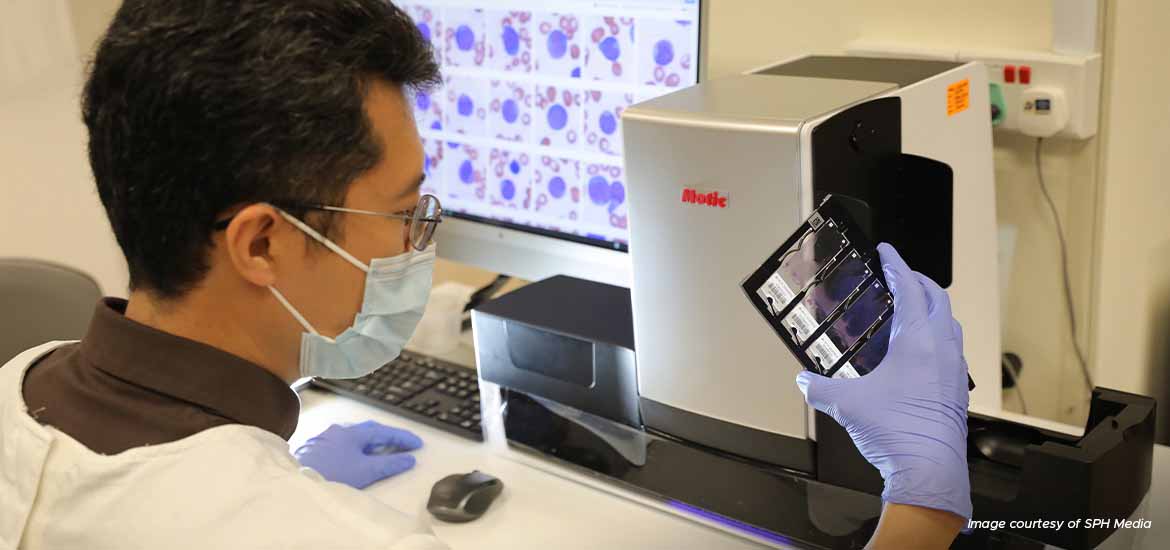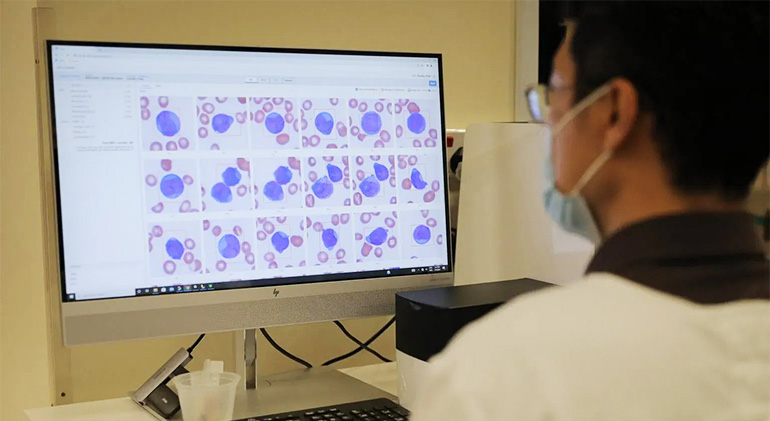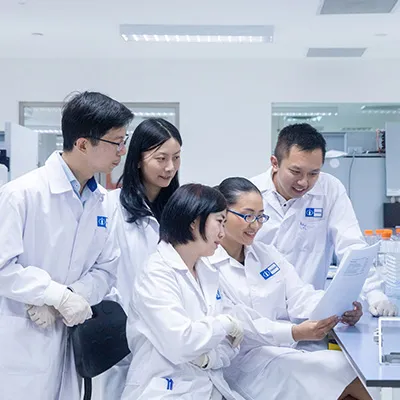Diagnosing leukaemia as well as diseases such as malaria may soon be faster and more accurate with the use of artificial intelligence (AI).
An AI-powered software dubbed Blade - developed by Tan Tock Seng Hospital (TTSH) and Taiwanese tech firm Asus - can cut the time needed to analyse blood for these diseases by half, allowing for earlier clinical intervention for patients.
The process currently requires a laboratory technologist to examine a patient's blood, which is placed on a piece of film under a microscope, and perform a manual cell count.
Those blood films with abnormal features or unclear diagnosis are sent to a reference laboratory or a haematologist for review.
This can leave the technologists fatigued, possibly leading to a greater chance of error, said TTSH haematology department consultant Eugene Fan.
He told reporters on Wednesday (July 6) that the TTSH haematology lab - which operates 24 hours a day, seven days a week - handles between 300 and 400 such blood films a day.
Blade allows for the procedure to be automated, enabling a technologist to load multiple blood films into a scanner that converts them into digital images.
The AI analyses the films and flags critical ones, such as cases of leukaemia.









